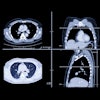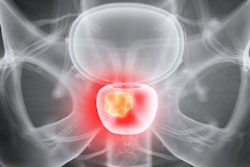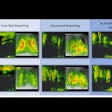
Artificial intelligence (AI)-based applications are having a significant impact on the radiology marketplace. In recent years, there have been significant contributions from AI to the field of diagnostic imaging. These contributions have impacted clinical decision support, hospital operations, workflows, and regulation agencies.
In the past several years, there has been substantial progress in developing AI programs to aid clinicians in their usage of diagnostic medical images. Two key areas where AI programs have made significant contributions are in clinical decision support and workflow process improvements.
Clinical decision support
The rate of research and development for new clinical applications of AI is significant and widespread. There are clinical AI programs available for all major diagnostic imaging modalities.
Some sets of AI program features that have been utilized across modalities are image quality improvements, lesion detection, and image analysis. Image quality improvement features focus on enhancing image reconstruction, image noise reduction, error reduction, and obtaining high-quality images with lower radiation dose.
Lesion detection features enable early detection of tumors and lesions and disease screening. Image analysis features can deliver faster image interpretations, measure and mark lesions, quantify tumor volume, classify abnormalities, diagnose micrometastases, and segment anatomy. The list of new capabilities and applications of these capabilities to new medical conditions and use cases seems to grow daily.
Workflow process improvements
The increased volume and complexity of imaging studies is contributing to radiologist burnout. AI programs focused on improving image processing time, radiologist reading workflow, scheduling, and patient communication can help alleviate these factors.
Two approaches that have been successfully implemented are to use an AI algorithm to triage imaging exams so that radiologists can focus on the most urgent studies. This approach has been used to decrease recall rates and the daily reading lists for radiologists.
Another approach that has been implemented improves the standardization of data and hanging protocols. This has created efficiency improvements for radiologists by allowing them to focus more on reading patient exams.
The integration of AI technology into the field of radiology is yielding new ways of generating information from medical images and improved processes for managing the challenges this new volume of information creates. As these advances continue and as these tools gain wider adoption in practice, the potential for improvements to patient care is substantial.
Davin Korstjens is senior market research program manager at IMV Medical Information Division, part of Science and Medicine Group. IMV's The Artificial Intelligence in Imaging Landscape 2022 Report explores recent advances at the intersection of artificial intelligence and medical diagnostic imaging. The report covers innovations and applications of AI technology in imaging and the companies that are active in this market.
The IMV's The Artificial Intelligence in Imaging Landscape 2022 Report was published in October 2022 and is based on secondary research and primary research from recent market outlook reports. Vendors covered in this report include GE, Philips, Siemens, and more.
For information about purchasing IMV's The Artificial Intelligence in Imaging Landscape Report, visit the corporate website at https://imvinfo.com/ or call 703-778-3080 ext. 1033 to speak with a representative.
Disclosure: IMV Medical Information Division is a sister company of AuntMinnie.com.



















